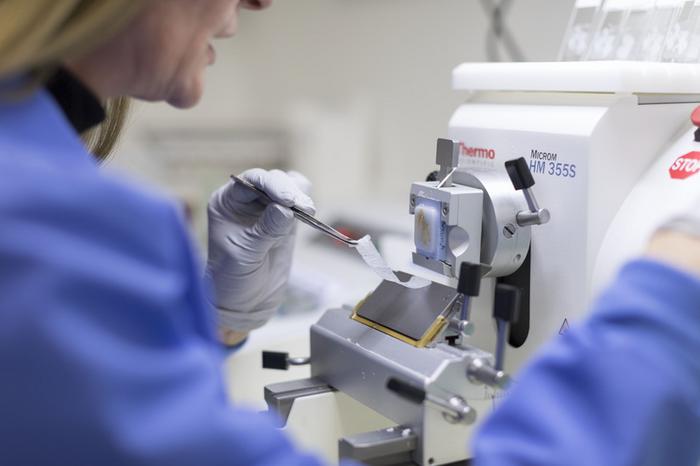Familial hypercholesteremia (FH) is an inherited condition that affects about 1 in 250 people, and often shows no signs until they have a heart attack. For individuals with FH the lowering of “bad” cholesterol levels can’t be done by dietary or behavioral changes, the problem is in their genes, and targeted medications therapy is needed.

Credit: Intermountain Health
Familial hypercholesteremia (FH) is an inherited condition that affects about 1 in 250 people, and often shows no signs until they have a heart attack. For individuals with FH the lowering of “bad” cholesterol levels can’t be done by dietary or behavioral changes, the problem is in their genes, and targeted medications therapy is needed.
Now, new research from the Intermountain Health in Salt Lake City has found that genetic screening can identify these patients and make them candidates for treatment that could prevent heart attack, stroke, and death.
“Most of these patients already had tests that showed they had high cholesterol,” said Stacey Knight, PhD, cardiovascular and genetic epidemiologist at Intermountain Health. “Our findings show that we should be genetic testing people who have unexplained high cholesterol, so we can aggressively treat it and cut down their risk of having a major heart event.”
Findings were presented at the American Heart Association’s Scientific Sessions 2023 in Philadelphia on Sunday, Nov 12.
Findings from the study come from the HerediGene: Population Study, one of the world’s largest DNA mapping initiatives, which is a partnership between Intermountain Health and Icelandic company deCODE.
The goal of the project is to discover new connections between genetics and human disease. When appropriate, it’s also providing genetic screenings for participants so they know about their risks of disease development, and what actions they can take to protect their health.
Familial hypercholesteremia is one of the diseases tested for, via identification of the LDLR gene variant.
In the study, researchers looked at the first 32,159 sequenced patients, and found 157 with a pathogenic/likely pathogenic variant in LDLR.
These participants were then divided into three groups: those with no prior FH diagnosis (47); patients with an FH diagnosis after a major cardiovascular event like heart attack, heart failure hospitalization, stroke periphery artery disease and carotid artery disease (41); and patients with a FH diagnosis before any cardiac event (69).
Researchers found that compared to patients without an prior FH diagnosis, those with a diagnosis before a major heart event had significantly more tests of their LDL cholesterol levels, increased statin and other lipid-lowering medications and a large change in LDL cholesterol. They were also slightly less like to have subsequent major heart events.
Researchers also found that LDL cholesterol measurements and statin use were similar for patients with an FH diagnosis either before or after a cardiac event. However, patients with FH diagnosis after an event had higher death rates.
These findings show the importance of more widespread genetic testing for familial hypercholesteremia.
“Referring these patients for genetic counseling could lead to intervention through medication, and lead to better quality of life, and save their lives as well as could result in additional testing and early intervention for their family members,” said Dr. Knight.
###
Method of Research
Observational study
Subject of Research
People




